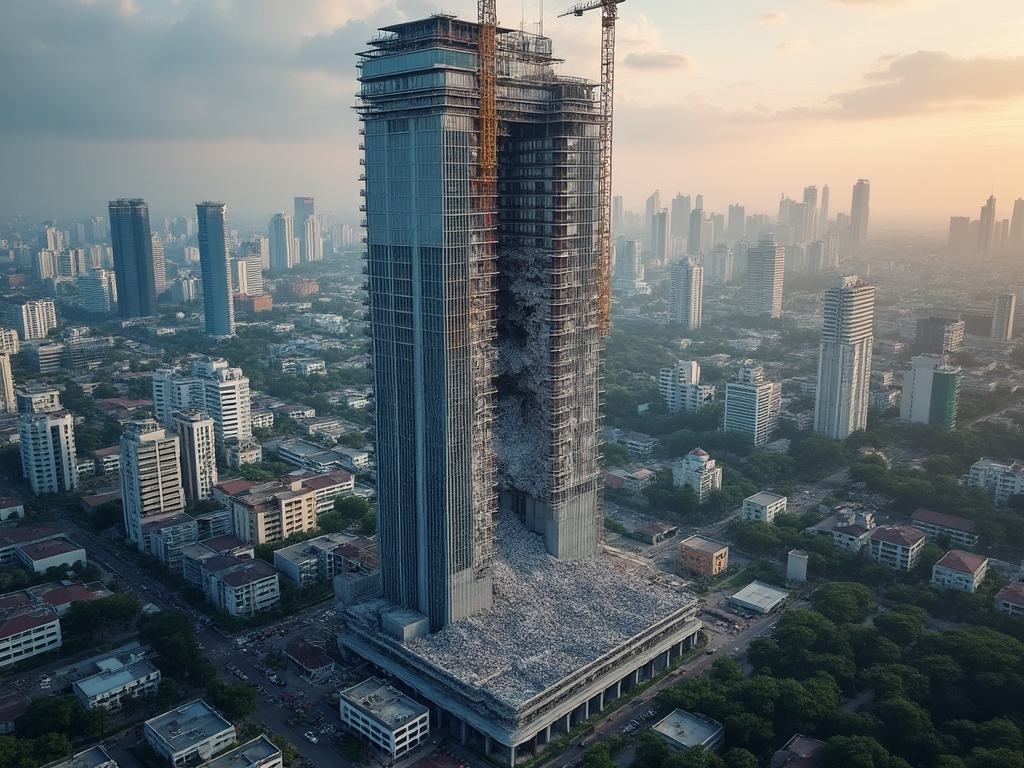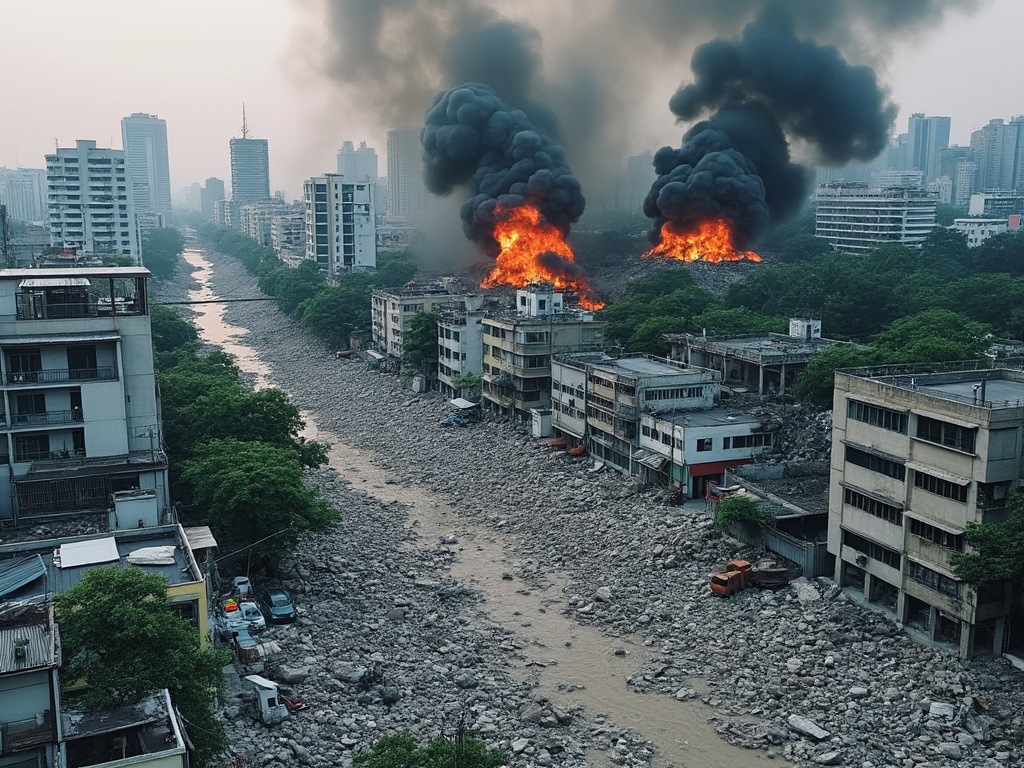
Global efforts to assist victims of the recent earthquake in Myanmar are complicated by the diaspora's refusal to support the ruling military government.
In the wake of a devastating 7.7-magnitude earthquake that struck Myanmar on Friday, the country's diaspora has mobilized to provide aid to those affected.
However, there is a collective agreement among the millions of Myanmar nationals living abroad: any assistance must not reach the military junta currently in power.
This sentiment is rooted in the discontent stemming from the coup led by junta chief Min Aung Hlaing in 2021, which has resulted in significant loss of life, economic decline, and widespread civil unrest.
The earthquake and its aftershock, which measured 6.4, have exacerbated the already dire circumstances within Myanmar.
The junta reported over 2,000 fatalities and approximately 3,900 injuries, highlighting the scale of the disaster.
In an unexpected response to the crisis, Min Aung Hlaing appealed for international assistance, requesting help from countries and organizations worldwide.
Despite this appeal, reports have emerged that the military regime continued bombings in Kayin state, targeting areas controlled by anti-coup forces.
This action has drawn sharp criticism from observers, including UN Special Rapporteur Tom Andrews, who described the situation as “incredible,” noting the military's simultaneous engagement in military activities while seeking humanitarian aid.
The ongoing violence reflects a long-standing pattern of neglect towards the civilian population in Myanmar by the ruling authorities.
As international entities consider providing aid, the junta remains characterized by its isolationist policies and has struggled to manage the country's devastation effectively.
The response from the Myanmar diaspora emphasizes the complex dynamics of disaster relief in a conflict-affected zone, where support is often moderated by political stances and humanitarian principles.
However, there is a collective agreement among the millions of Myanmar nationals living abroad: any assistance must not reach the military junta currently in power.
This sentiment is rooted in the discontent stemming from the coup led by junta chief Min Aung Hlaing in 2021, which has resulted in significant loss of life, economic decline, and widespread civil unrest.
The earthquake and its aftershock, which measured 6.4, have exacerbated the already dire circumstances within Myanmar.
The junta reported over 2,000 fatalities and approximately 3,900 injuries, highlighting the scale of the disaster.
In an unexpected response to the crisis, Min Aung Hlaing appealed for international assistance, requesting help from countries and organizations worldwide.
Despite this appeal, reports have emerged that the military regime continued bombings in Kayin state, targeting areas controlled by anti-coup forces.
This action has drawn sharp criticism from observers, including UN Special Rapporteur Tom Andrews, who described the situation as “incredible,” noting the military's simultaneous engagement in military activities while seeking humanitarian aid.
The ongoing violence reflects a long-standing pattern of neglect towards the civilian population in Myanmar by the ruling authorities.
As international entities consider providing aid, the junta remains characterized by its isolationist policies and has struggled to manage the country's devastation effectively.
The response from the Myanmar diaspora emphasizes the complex dynamics of disaster relief in a conflict-affected zone, where support is often moderated by political stances and humanitarian principles.




































